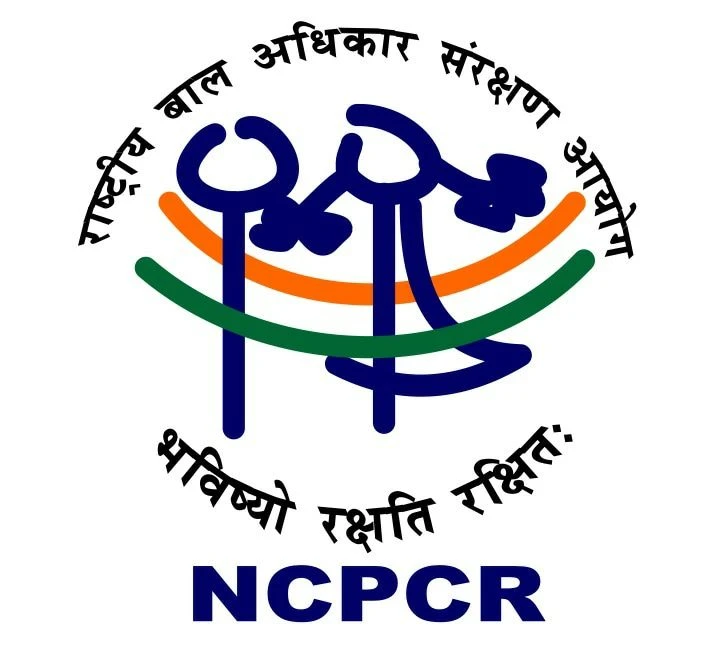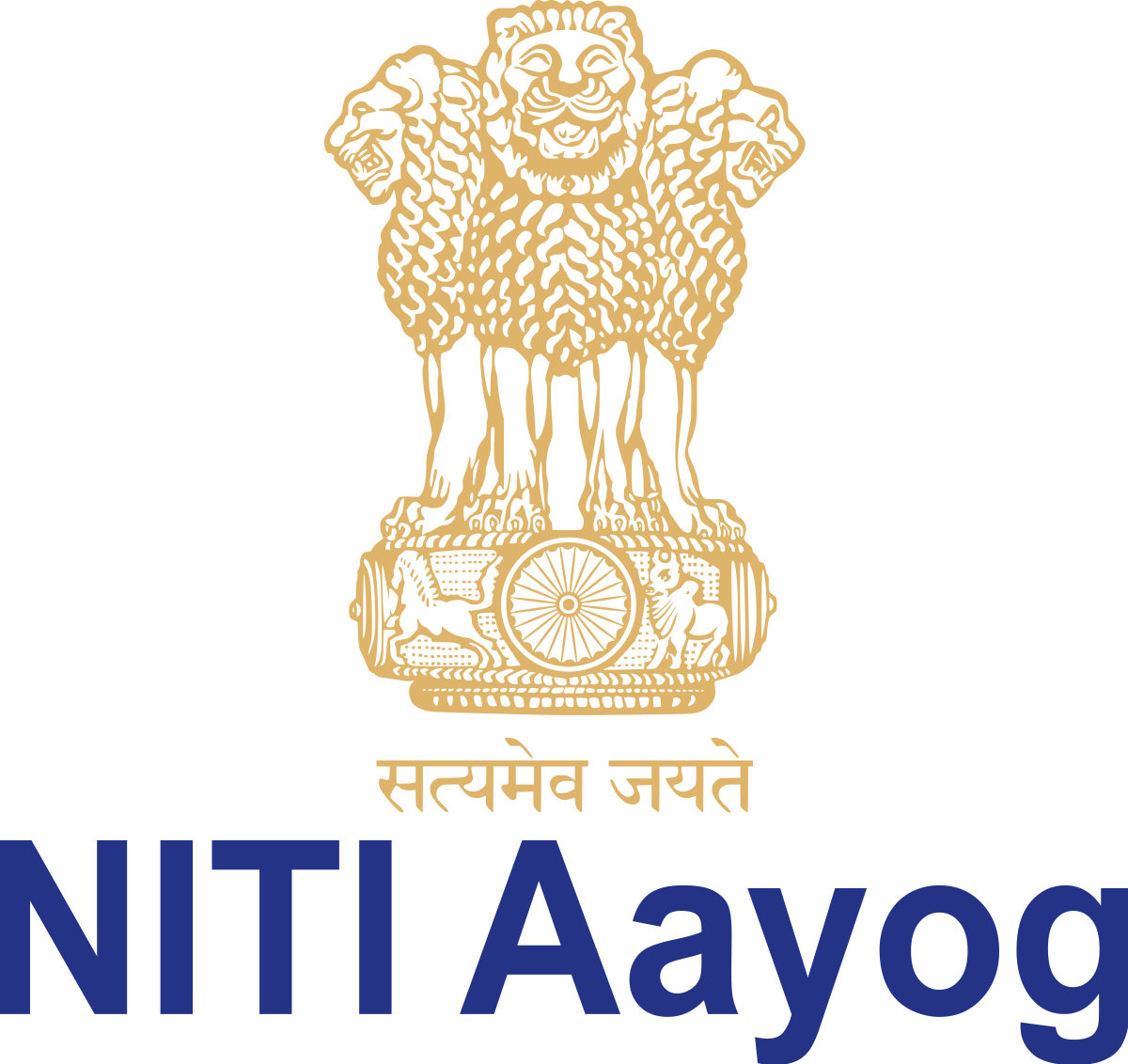NASP; a not for profit organization, believes that Education is the fundamental resource in societal evolution as a community and country.
Over centuries educational practices have progressed with experimentations, research & development and participation of learned and learning around the world. Today the enriched experiences of educationalists are available on the internet. Thus crossing the barriers of international boundaries, languages, belief systems and bias. With New Education Policy, NASP is extending a bridging platform to connect all stakeholders for the wellbeing of up-and-coming students. We believe that the inclusive partnerships of all patrons will widen and deepen the content of every subject related to holistic development of each student in the country.
NASP
NASP is aligned with Sustainable Development Goals to fulfill the global and national gaps in thematic
areas of Education. Founded by prominent and dedicated people from diverse domains, NASP aims to
understand the diversity of thoughts of expert panels of educators, governmental approach, expectations
of parents, ambitions of students and other institutes engaged with children and youths. We look forward
to proposing rightful advocacy and delivering strategic planning for impactful interventions in academic
growth and personality development of all students. The core of NASP is willingness to magnify the
crucial standards of Education by creating models of good teaching –learning methodologies for empowering
students and contributing towards a better learning environment.
NASP is an open platform to exchange ideas, knowledge, teaching-learning practices and indigenous
literature. We acknowledge the award winning experiences of teachers, appreciate contributions from
numerous stakeholders and recognize the efforts of the student fraternity to mark their footprints on the
global map.
Be a catalyst of change with NASP by participating in structuring the framework of education.
Objectives of NASP
To be a catalyst for ‘‘Future Ready’ Education:
The global education development agenda enshrined in the Goal 4 of the Sustainable Development Goals (SDG) seeks to “ensure inclusive and equitable quality education and promote lifelong learning opportunities for all” by 2030. In order to also achieve all other goals of the SDGs, entire education system needs to be reconfigured to support and foster learning. The agenda is to put in place a system for a Future Ready Education. With the quickly changing global landscape and ecosystem, it is becoming increasingly critical that children not only learn, but more importantly, learn how to learn! Education thus, needs to move more towards learning about how to think critically and solve problems, how to be creative and multidisciplinary in approach. Education must build character, enable learners to be ethical, rational, compassionate, and caring, while at the same time prepare them for gainful, fulfilling employment / jobs / profession. NASP can be an essential national level platform to contribute and catalyse activities towards achieving this goal. NASP though its activities, programmes, engagement with schools, school Principals, teachers and equally with parents and other stakeholders aims to stimulates and nudge young minds to move from self-immersion to imagining new possibilities, raising questions, making informed life-choices, develop empathy and social skills while they acquire knowledge that is holistic and applicable in whatever field of education it may be.
To be a catalyst for ‘‘Future Ready’ Education:
The purpose of the education system is to develop good human beings capable of rational thought and action, possessing compassion, courage, resilience, scientific temper and creative imagination, with sound ethical moorings and values. Empathy can be considered to be the ingredient to all such human values in their true senses. Empathy makes it possible to resonate with others’ positive and negative feelings alike. It can make us feel happy when we share the joy of others as well as we can share the experience of suffering when we empathize with someone in pain. NASP aims to be the organization and the platform to empower and give voice to school principals, educational trust members, policy makers and other school leaders across the It is designed to revolutionize education by introducing the ‘Empathy-to-Action’ paradigm. It is effective in providing a nuanced understanding of the life challenges faced by ordinary human beings which are also manifestations of various sustainability challenges. Students step into experiencing real challenges of life after graduating from schools and institutions of higher education. While still being in educational institutions they are helped to gain insights in solving the challenges of professional life, sustainability of different sectors and sensitized properly, these children can grow up as future leaders in true sense and contribute to solving global problems.

Be a Catalyst to Inculcate SELF ESTEEM in Children:
The learning pedagogy in schools should steer the young minds towards developing ‘self esteem’. During the 70s, there was a conscious effort to develop self-esteem in the children of that generation. Looking back, the reason for enhancing self-esteem in those eras was mostly myopic when compared to the kind of self-esteem we need in today’s millennials. Human behavior is driven by needs, one of which is the need for a sense of personal importance, value or self-esteem. NASP aims to undertake pioneering activities including an enrichment of STEM model of education by a holistic outlook based activities and initiatives in order to produce innovative students who are driven by a passion for change-making. Emphasis shall be to help them appreciate cultural values at an implicit level, encourage young minds to act according to the expectations of the society, meaningful decision-making strategies about relationships, education, jobs, and money management and allied.
When asked about how he created his masterpieces. Michelangelo had replied that he simply saw the works of art embedded within the slabs of marble and then set about chipping away at everything that wasn’t of that work of art. That’s also a self esteem which today’s children need to know…ability to appreciate surroundings, nature, empathize with difficulties and challenges of fellow human beings.
Policy and Advocacy
The world currently is juxtaposed with a number of burning global issues like climate change, food and nutritional insecurity, hunger, geo-political-social-ethnic-trade conflicts, increased natural and man-made disasters, racism and a host of other problems. COVID-19 in 2020 compounded the problems and the lives of global communities turned upside down due to the challenges and disruptions caused by the Global pandemic. In such a disturbing and complicated situation, the importance of interactive learning, development of leadership, fostering empathy, holistic learning pedagogy and allied aspects of education are never felt like before. We are at a cross-road where many feel that world needs to be rebuilt, this time not just on the basis of acquired knowledge from educational institutions but on the on the foundation of true and applied knowledge in combination with empathy, kindness, and compassion as a basis for productive communities to us and our children.
When it comes to today’s children, social researchers are finding a different magnitude of problem. Driven by various factors including current system of education in various Countries including that in India, focus on rote learning and disregard to holistic personality development through education, digital intoxication, social media addiction and less inclination to socialize, today’s younger generation, also called the Millennials are the developing narcissistic personalities within themselves. Empathy is hugely lacking and the children are becoming increasingly inward, without knowledge of how different societies should co-exist. In a recent TIME magazine article, this generation has been termed as the “Me Me Me Generation”! Social researches have found disturbing trends and acute lack of empathy in today’s generation of the young people, some of which has been highlighted in the following infographic:
Thus we are now in a situation where we urgently need to help today’s generation to develop ability and desire to understand one another’s inner emotions, and need to intentionally cultivate holistic learning ability through a systematic approach in educational institutions, starting from the schools. We are in a world where our children need to deeply connect with someone’s emotions as separate from one’s own. This in turn will allow one to take action, leading to applied and holistic knowledge in different academic streams- arts, science, commerce, business, economics, social or community development. We have seen the unique features of NEP as an educational vision and its relevance today in the age of global citizenship where learning needs to be student driven, strikes a balance between skill and values outcomes, need for a future ready education along with the need for developing empathy in the students. National Education Policy 2020 (NEP 2020) perfectly summarizes this when in its document it mentions “education must develop not only cognitive capacities - both the ‘foundational capacities ’of literacy and numeracy and ‘higher-order’ cognitive capacities, such as critical thinking and problem solving – but also social, ethical, and emotional capacities and dispositions”.

Child Safety
Our Initiatives
Initiatives
Students and Entrepreneurship
Early Stage Orientation and mentoring of School Children in Entrepreneurship Development- In the Language of Children
The recent global economic crisis induced by COVID 19 pandemic has highlighted the importance of a Country to be resilient and ‘atma-nirbhar’ and the need competitiveness, employment level and social welfare. One of the important drivers for these factors is a vibrant entrepreneurial ecosystem. In the last couple of years, India has captured the imagination in global stage with the advent of a number of start-ups, many of them being Unicorns. This has been made possible by various policy level interventions and support system for entrepreneurs. However, another important aspect which is critical is to ignite the young minds towards entrepreneurship and self-reliance. In early 2000, the Organization for Economic Co-operation and Development (OECD) recommended that all of its member countries should include subjects related to entrepreneurship at all educational levels.
NASP recognizes the effective role it can play as a tutor and an adviser in order to contribute to economic-administrative knowledge, the reinforcement of values, the development of entrepreneurial skills and the recognition of entrepreneurship as a long-term strategy for self-employment and wealth creation among school students. Various social studies have also revealed that children can be effectively educated to become entrepreneurs and to make business decisions based on personal and social values. However, the contribution of such programmes depends on critical assessments of entrepreneurship instruction suitable for the school children such that it can have quantifiable positive effect on subsequent entrepreneurial activities of the children when they grow up as adults in the society. The basic intention of NASP is to develop an entrepreneurial spirit which is sustainable and gradual. But the beginning can be during a child's basic education, and then one can strengthen this spirit at higher educational levels, effectively proving that such a spirit is fully realized and achieved when the individual enters the labour market.
However, many of the schools are not able to focus on this important aspect and co-opt it to their existing course curriculum for various genuine reasons. Some of the challenges faced by schools to take up training sessions on entrepreneurship development in young minds are:
- Lack of Awareness: School Principals and teachers understand that students need to be prepared for life, but they are not always aware that through entrepreneurial studies that combine imparting knowledge, empowerment, experience, and mentoring, they can meet this need. Additionally, learning also becomes so exciting and meaningful for students.
- Lack of Knowledge: Sometimes, there is a willingness among school authorities and staff to introduce students to entrepreneurship, but there are no training and guidance for teachers. In this situation, each teacher has to reinvent the wheel to the best of his/her understanding which is always not possible in addition to the already existing pressure of regular classes. NASP realizes that when the study materials are well-prepared and well-written for the teachers and when they undergo a short and focused tutorial, it allows teachers to enter the classroom and teach entrepreneurship with confidence.
- Concern About the Subject: Teaching a topic like Entrepreneurship Development to school children needs teachers to go out of the traditional thinking of schooling and to go out of their comfort zone. It should allow students to be creative, imaginative and come up with ideas on subjects in which the teachers may not have much prior knowledge or they are not always experts in those areas. This is a situation which is not comfortable to some teachers. There are teachers who fear this situation. However, it is also true that we are not supposed to understand every topic that interests the students, but we are able to help them evolve in directions that interest them.
- A challenge to overcome the existing mindset: Our belief and understanding around teaching students in school goes against teaching a topic like entrepreneurship development to school children, talking to them about business at such an early stage of their life. It is not always easy to accept themselves to be encouraging projects where the entire purpose is doing business in a situation where teachers see their role as an educational-value institution.
Krishi Darshan
NASP’s Unique Initiative to Expose Urban School Children to Agriculture and Rural Life
School children, particularly those living in urban areas need to know and see with their own eyes what it takes for a farmer to grow the crops which the children consume in the comfort of their homes. It helps them develop empathy and understanding of rural life and appreciate the contribution of the farmers of our country who are our ‘annadata’. It helps them develop their personality and grow up as complete individuals and as future leaders. They grow up as individuals which compassion, passion and appreciation of every sections of the society including our farmers.
With this very thought in mind, NASP has taken up this activity where it plans to organize exposure visits of school children from urban areas to nearby rural destinations where the children can be exposed to rural life, farming operations and life of our farmers. Idea is to provide hands-on experience about farming and to closely understand the socio-economic condition of farmers in our Country. It also helps in far reaching positive impacts like integrating farm to school concepts into the academic standards based curriculum in urban schools. It is usually fun filled as well as valuable learning experience of the school children.
They find joy and fun in visiting crop fields, seeing with their own eyes for example fields with standing crops like paddy, sugarcane, potato, mustard etc., plots with standing vegetables that they eat every day, fishing units, dairy units and other farm related activities. They also find fun in participating in some impromptu cultural programs of folk songs, village games, interact with village children, take a joy ride on a tractor, feed cattle and experience the rural life.
National Education Policy
Recommendations of NEP 2020 |
|---|
| Recognizing, identifying, and fostering the unique capabilities of each student. |
| Enable students choose their own paths in life according to their talents and interests. Promote multidisciplinarity and a holistic education. |
| Emphasis on conceptual understanding rather than rote learning and learning-for-exams. |
| Encourage creativity and critical thinking to encourage logical decision-making and innovation. |
| Impart ethics and human & Constitutional values like empathy, respect for others, cleanliness, courtesy, democratic spirit, spirit of service, respect for public property, scientific temper, liberty, responsibility, pluralism, equality, and justice. |
| Promote life skills such as communication, cooperation, teamwork, and resilience. |
| Extensive use of technology in teaching and learning, removing language barriers. |
| Instill respect for diversity, equity and inclusion in the minds of students. |
Essential Features of NEP are:
- Producing engaged, productive, and contributing citizens for building an equitable, inclusive, and plural society.
- A wide range of learning experiences is offered to every student.
- Enhance life skills such as communication, cooperation, teamwork, and resilience in young minds.
- Curriculum and Pedagogy in Schools: Learning should be Holistic, Integrated, Enjoyable, and Engaging.
- A digital repository of content including creation of coursework, Learning Games & Simulations,
Key Activities and Initiatives of NASP (in convergence with NEP):
Undertake relevant activities for children on Social & Emotional Learning (SEL) and organic living.
Develop various learning formats and group- exercises for children both within the class-room context and out of the classroom contexts.
Exposure of children to other cultures, and sensitization on socio-economic contexts etc.
Encourages creativity and critical thinking to encourage logical decision-making and innovation.
Develop tools for recognizing, identifying, and fostering the unique capabilities of each student.
Edutech
Amplify Student Learning Technologies Today’s school students are no doubt in an era where technology has influenced every aspects of their life including the way they study. There is no doubt that the use of technology in education is on the rise and the experts feel that coming years will witness further splashes of technological advances in this sector . There has been exponential growth in the use of digital technologies this century and future decades will be witness emergence of many disruptive technologies. The number of students with access to a computer at home increased manifold in the country, the internet connectivity and its speed increased significantly in recent years along with increase in access to the internet. These are acting as growth drivers for emergence of various educational technologies, both in primary and secondary school classes. School children these days have easy access to educational technologies which can be frequently and conveniently used to learn or practice various skills, starting from basic skills such as reading, preparing written text, corresponding with others to mathematics, science and various research topics. The A Blume Ventures report (note: this report is based on rough assumptions) suggests that the EdTech market was close to $750mn in 2020 and will hit $4bn by 2025.
NASP considers that the use of information technology in modern teaching looks set to grow further. Given the growth of education technology, concept of modern classroom is surely and certainly getting changed. Quite expectedly, it has impacts for both students and teachers. NASP contributes towards developing a productive, meaningful and transformative ecosystem, for both the teachers and the students. For school teachers, information technology has already formed a crucial part of their teaching style right from the onset of the COVID 19 induced global pandemic. They are increasingly using online resources, software programs or apps to help their students engage with and learn concepts from various curriculum areas.
With the anticipated influx of a number of new educational technologies in the education sector, NASP believes that that change in digital scholarship or digital proficiency in teachers is many a times a complex and personal process. Teachers need hand holding, change the way they used to think all these years about class room based teaching and need a fair degree of behavioral change. NASP has identified interventions and teachers orientation need and is working on mainly four areas related to the manner in which teachers’ use of digital technology changes over time, namely knowledge, learning organization, pedagogy and core approaches to teaching. It has been found that some teachers showed faster, more consistent change in their practices with digital technology than others. It’s been also observed that changes are reflected individual knowledge and beliefs, and NASP works to find ways and means to bring about a positive and faster behavioral change in teachers towards using technology aides during teaching.

NASP provides all support teachers need to implement education technology and works towards handholding the school teachers acknowledge and help them build upon their professional understandings and aspirations.
On the other hand, for the school students, use of ICT has different ways of acceptance and manifestations in regular process of learning. There is so much variation among learners and the nature of learning tasks that it does not always result in greater emotional engagement or stronger cognitive engagement with learning for school children.
NASP works with school students in various schools to help them realize the actual aspects of “student engagement”. NASP through its various activities in the domain of education technologies strives out the actual difference between “student engagement” and “student participation”. Even though a student might not be deeply engaged during a teaching session in the class, it’s possible for him/her to participate in class without being truly engaged with the topic or the subject. They might raise their hand and answer questions they know, but that doesn’t necessarily mean they have thought through the content. For example, a student in maths or science might be able to solve problems quickly using a formula, but they may not understand why that formula works and how to apply it in different contexts. It is exactly here in this context that various teaching apps or education software can help increase the engagement level of the students. NASP works towards building a bridge between education technology and the students through activities which help students appreciate the engagement with any topic or subject that’s important for meaningful learning.
Career Guidance
Sensitize, Support and Counsel Career Planning for Students One of the important commitments of NASP is promoting student achievement and helping them prepare for global competitiveness by choosing the right path towards educational excellence. NASP specifically recognizes the need for an effective career guidance and counseling program for students to help them not only to identify the right future career path but also to reduce stress in a student’s formative mind.
ASP, though a comprehensive developmental program designed to assist individuals in making and implementing informed educational and occupational choices, offers career guidance and counseling programs. This helps in developing an individual's competencies in self-knowledge, educational and occupational exploration, and career planning.
Career guidance and counseling programs help students acquire the right knowledge and skills in convergence with the intrinsic ability and talent. It helps in gaining the right experience necessary to identify options, explore alternatives and succeed in society. NASP’s career counseling programs help student better prepare for the changing workplace of the 21st century by:
- Sensitizing about market changes and complexity of the workplace Broadening knowledge, skills and abilities in students.
- Helping students improve decision making skills.
- Increasing self-esteem and motivation in the formative minds of the students.
- Building interpersonal effectiveness.
- Maximizing career opportunities for the students.
- Improving future employment, right positioning and cease opportunities.
- Promoting effective orientation towards future jobs in demand.

Everyone benefits from such effective and holistic career counseling programmes-students, their parents, school teachers, vocational institutions, industry and the society at large. Though focused in supporting career planning for school children, NASP is equipped to address the needs of the students everywhere- elementary, junior and senior high schools, community colleges, technical institutes, universities, skill development centres etc.
NASP gives importance to the following key components of successful future career guidance and counseling programs for students: A planned sequence of activities and experiences to achieve specific competencies such as self-appraisal, decision making, goal setting, and career planning Outcome oriented accountability and continuous program improvement ecosystem based on results of process/outcome evaluations. Qualified leadership and mentorship. Effective management support from NASP essential for comprehensive career guidance programs. A team approach where trained counselors are engaged by NASP and this is central to the programs undertaken. Ensuring adequate facilities, materials and resources during counseling programs. Strong professional development activities undertaken by NASP internally for the counselors such that they can regularly update their professional knowledge and skills. Adoption of different and innovative approaches to deliver the program such as outreach, assessment, counseling, curriculum, program, follow-up, consultation, etc.
NASP realizes that any kind of student counseling activity requires partnering and leadership roles. It is like serving as advocates to all students. In the process, it is worthwhile to recognize that not all students learn the same way, nor do students have the same interests or abilities. The essence of effective career counseling for students is to be able to serve an increasing number of special needs for a diverse range of students as well as catering to the future career needs of a number of students with mild learning disabilities. Many of these students experience far greater challenges in readying themselves for the worlds of continuing education and life/work experience as they grow up in their life.
Recent Works
Works

NEAT 2.0
Partners with AICTE for NEAT 2.0 Programme
to train students across technical colleges on Artificial Intelligence.

Prevention of Drugs and Substance
Prevention of Drugs and Substance Abuse among Children
On-going programs with Gandhi Smriti and Darshan Samiti on Joint Action Plan on Prevention of Drugs and Substance Abuse among Children powered by NCPCR and NCB amongst educational Institutions.

Financial Literacy
Engaged 50000 students with Punjab National Bank.
Successfully implemented and piloted an e-module on Financial Literacy and engaged 50000 students with Punjab National Bank.

Children in Schools
Safety and Security of Children in Schools
E-module on “Safety and Security of Children in Schools” based on the manual developed by NCPCR, which impacts all stakeholders in the school ecosystem.
Our Team
Have a question?
Get In Touch
Location:
A 92 (First Floor) South Extension Part II New Delhi- 110049
Phone:
+91 96506 31134
Email:
info@glcloud.com













